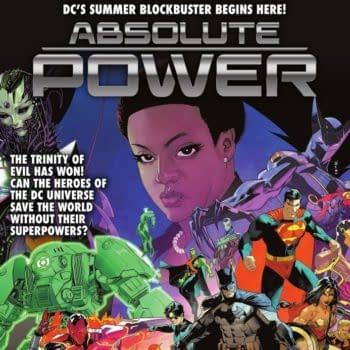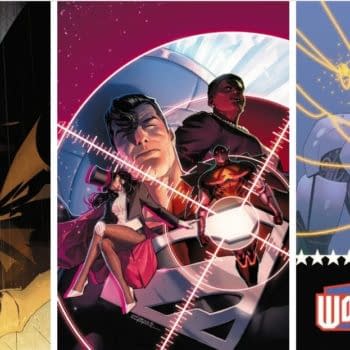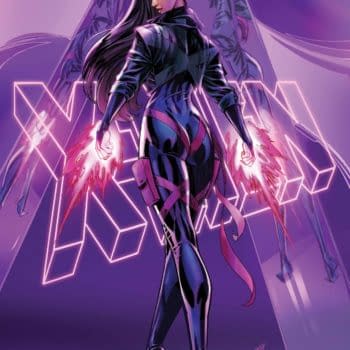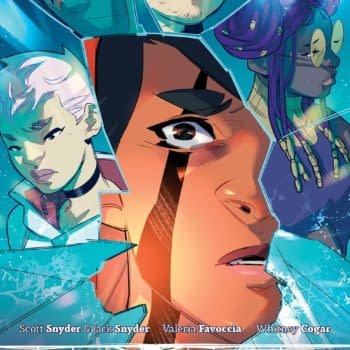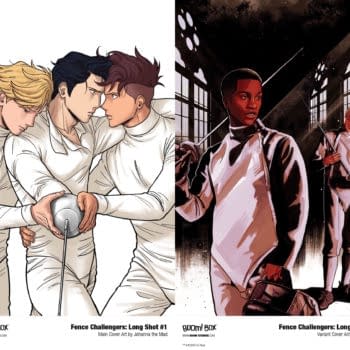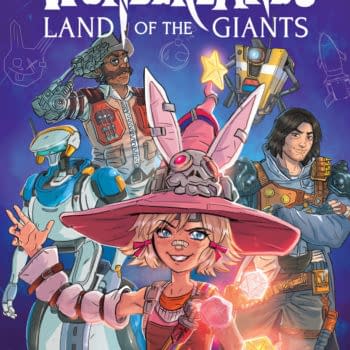Posted in: Comics, Recent Updates | Tagged: aftershock, Comics, entertainment, Mike Marts, scott snyder
Identifying AfterShock With Top Level Talent: An Exclusive Interview With Mike Marts
By Olly MacNamee
With the anticipation for the imminent launch of AfterShock Comics slowly burning away with recent revelations this week, I was lucky enough to speak exclusively to Mike Marts about his career in comics, his personal victories and what makes Aftershock different to the other kids on the block.

Mike Marts: Yeah, there are a few. Many people talk about The New X-Men with Grant (Morrison) or they talk about Astonishing X-Men with Joss (Whedon) but I think there were a few other moments at the time that I really saw as personal victories and career victories. One of those books was The Exiles. I mean, I think that initial run was close to or over 100 issues, it went for a while. When we first started that book it almost didn't get off the ground. We had an idea to do something with the character, Blink, because she was popular from The Age of Apocalypse and we had an idea about travelling to different, popular moments in Marvel history and we were fortunate enough to be turned onto Judd Winick, who hadn't done a lot of mainstream stuff at the time, but he was a big X-men fan, he had a great pitch.
We had Mike McKone to launch the book, and it wasn't that the powers that be had a problem with the idea, it just wasn't something they wanted to do at the time, so it was almost reduced to a 5 issue limited edition series, and at the last second, somehow we convinced the bosses that this had legs to be an ongoing series. And, it became one of Marvel's most consistent sellers for many years…. And it allowed us to tell a lot of great stories with a lot of great creators. After Judd left we had Tony Bedard, Chuck Austen and other people. To me that was a good victory, regardless of it not standing out as much as some of the other titles at the time.
OM: Yes, I remember reading at the time. Maybe it's because of the Doctor Who fan in me that I was attracted to it. It certainly did have a different feel and flavor to it compared to the other X-Books the time. I really enjoyed it.
MM: The other one, which I think a lot of people take for granted now, was Wolverine: Origins. We sat in a room, Joe Quesada's basement and people started talking and we were asking the question: what hadn't we done before? What haven't we allowed ourselves to do in the past that we could do now? And, someone in the room said, 'Why don't we tell the origin of Wolverine?' It had been a taboo thing; you never go there, you never tell the origin. I think it was former-Men editor, Mark Powers, who had the idea. And we thought, 'You know what, maybe it is time we did this.' We brought in the right creators with Paul Jenkins and Andy Kubert and there's a lot of great Origin ideas that never even made it onto the page, but the things that have got onto the page is stuff that made it into the movies. All that stuff didn't exist before. So, yeah, that was another big moment for me.
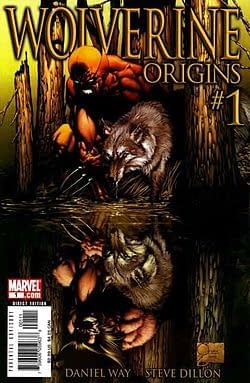
MM: Some extra characters that may have been involved in the estate that James grew up on when he was very young, but we found that it would probably be a bit too much, so we needed to limit the cast.
OM: So, no guest appearance by The Exiles then?
MM: (Laughs)
OM: When working with such a talent as Joss Whedon, how does that work when editing a TV and film guy? What are the challenges?
MM: Yeah, it can present different challenges, but in Joss's case, coming over to write the comic book, fortunately, Joss was such a fan of the art form and comics to begin with, and how he wrote the Buffy episodes was very similar to how comic books are written and so, when he turned in his script for Astonishing X-Men, there was no learning curve. It was just as polished and pristine as possible. Not that I would be able to teach Joss anything, or feel that I had the right to teach him anything. We didn't have to school him anything. It was as though he had just rolled into it as a Top 10 comic book writer. His script was immaculate.
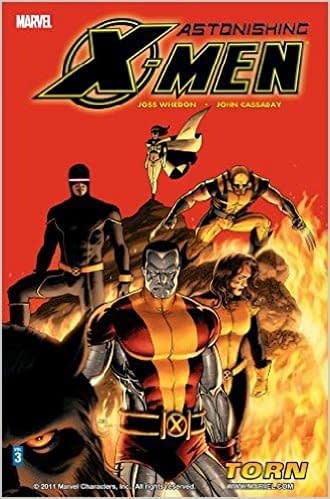
MM: No, but every writer has a different style. There are people are more minimalist. They don't need to go into great depth because they can capture everything in just a well-crafted sentence. Others are more verbose, more descriptive and that's fine too. I think as long s you find the right kind of combination between the writer and the artist and they can understand one another, that is what toy really nee. A case in point – which they've both publically spoken about before – Scott Snyder and Greg Capullo – when we all started working on Batman together, Gregg would say to Scott, 'Don't write so much,' and Scott would be like, 'What are you talking about. I write how I write.' But after a few issues of getting the rhythm with one another, both guys saw what the other one was talking about and Scott saw that Greg was a natural born storyteller and sometimes all he therefore had to give him was the smallest amount of direction and he'll be able to do more, and better with that, than if he spent a whole page describing something. So it's all about finding the rhythm and that can be the challenge as an editor sometimes, pairing the right writer with the right artist and get the best work out of one another.
OM: I mean Batman was a runaway success for The New 52. Did you feel as the Bat-books editor at the time that books like Detective Comics were overshadowed? Did it lose any of the love?
MM: I think so, yeah. In hindsight, we all felt that each series had it's own chance of succeeding (at the time of The New 52 launch). I mean, when Batman No.1 launched, Scott Synder wasn't quite at that top level yet. Internally, we all knew what a brilliant writer he was, but the masses hadn't learned it quite yet. So, when it hit and it was such a breakaway success, it was just ultimate validation and so satisfying that now, all of comicdom and all of the readers realized what a fantastic writer Scott is just like we knew for the past year or two. He'd done plenty of work for Vertigo and a Detective Comics run for me, which was all great stuff, but when he got onto Batman and teamed up with Greg, it went to a whole new level.
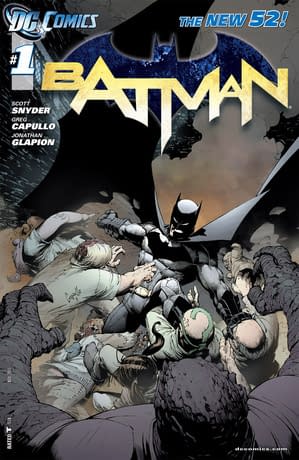
MM: Scott was a huge part of it. Working with Grant (previously on Batman) and Scott, two very different writers. Grant's vision was very much his own and I think the Batman books under his writing leadership succeeded because of that vision. When Scott came in, Scott's approach was more expansive and that was one of my big wishes with the Batman family was to make it really feel like one big family. I always look to the work Denny O'Neil did when working on his long run on Batman, the Batman family always felt like a family. Over the years, I think, different editors, different initiatives separated the titles a little bit and they started operating on their own, which was all fine, but I personally felt it was time to bring back that family aspect. And so, Scott, thankfully, was also of the same mind. So when we launched New 52 we intentionally build the Batman mythos so that we could incorporate different characters, different creators, so that everything could operate under the same story umbrella but that every book was it's own thing and operate on its own.
OM: Well, yeah, there still are different characters spotlighted in the different Bat books even now.
MM: Yeah, they continue to do such a great job in that family of books. I think what was fun was that once or twice a year you had the opportunity for the books to come together and tell a big, epic story but we were able to lead to it organically so that it never seemed like forcing this down your throat. It was as a result of natural storytelling and different story threads coming together.

MM: I believe it's going to be the quality of the story. When people see our logo and our name, they are going to identify it with top-level talent. The story, the artwork, people will identify our brand with quality. That is why we aren't concerned with title count, or market share. It's more important to us to get good books our there. If that means there are four good books, awesome or twelve good books, even better. But, we are not going to force twenty or thirty books into the marketplace if anyone of them is not up to the level of quality we are aspiring for AfterShock.
OM: And what about digital content, how do you see that progressing in the field of comics?
MM: It's a mix of short-term and long-term. To us, the digital area is still the Wild West, in a great way. There's so much ground to cover and as an industry we are still figuring it out. I think some companies have made great strides and have achieved a lot in a short amount of time, but I believe there is so much more to do and that's been a lot of fun for our company, brainstorming about the new digital arena and how we'd like to tackle it and approach it. It's an exciting area that we talk about daily and we just don't know where it's going to be, but we're excited to see where we get.
Olly MacNamee teaches English and Media, for his sins, in a school somewhere in Birmingham. Some days, even he doesn't know where it is. Follow him on twitter @ollymacnamee or read about his exploits at olly.macnamee@blogspot.co.uk. Or don't.










